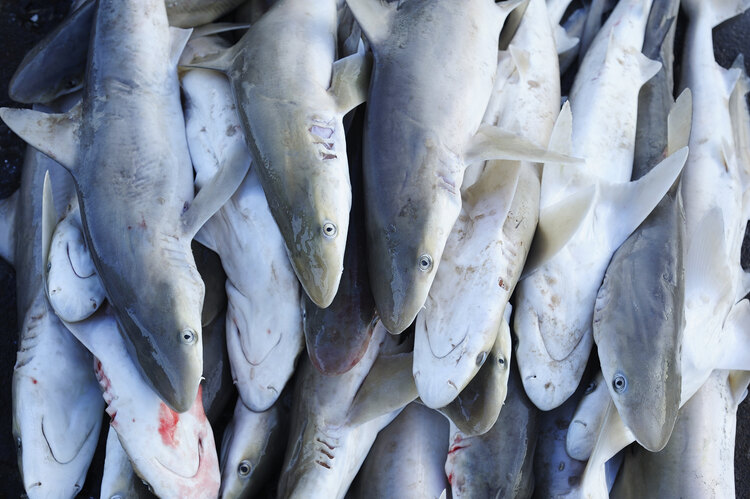
A new study suggests bans on finning may have backfired by increasing the global demand for shark meat
More than a third of all shark species are heading towards extinction. Sharks face various threats, from warming oceans to coastal development, but overfishing has been the main cause of decline over the last half-century. Despite the widespread introduction of protective regulations to prevent this, a new study published in Science reveals that shark mortality rates from fishing are increasing.
Since the 1990s, countries have introduced rules to curtail unsustainable practices such as finning (where fins are removed before the shark is discarded back into the ocean) and, today, 70 per cent of countries and maritime jurisdictions have laws against shark finning. But the authors of the study say that, until now, the impacts of these laws had not been evaluated at a global level. ‘We found that despite myriad regulations intended to curb shark overfishing, the total number of sharks being killed by fisheries each year is not decreasing,’ says senior author Darcy Bradley. ‘If anything, it’s slightly increasing.’
The researchers estimate that between 2012 and 2019, fishing-related shark mortality increased from at least 76 to 80 million sharks, around 25 million of which were threatened species. This increase was primarily from coastal shark fisheries, the activities of which account for 95 per cent of all sharks caught and killed. High mortality rates were reported along the Atlantic coast of the Americas, West Africa, the northern Indian Ocean and the Coral Triangle (a biodiversity hotspot spanning Indonesia, Malaysia, Papua New Guinea, and the Philippines). It’s a worrying trend for threatened species such as hammerheads, which are a coastal species, but also for wider ocean ecosystems.
While protective regulations likely reduced the practice of shark finning at sea, the study suggests that they may have increased the overall number of catches by incentivising the full use of sharks and creating additional markets for shark meat and other products. ‘We have seen the demand for shark fins decreasing and the demand for shark meat increasing, with Brazil and Italy being the main consumers,’ says co-author and biologist Leonardo Feitosa. ‘Because shark meat is a relatively cheap substitute for other types of fish, there is considerable mislabelling, making some consumers eat shark meat without their knowledge.’
However, according to the study, other protective measures have proved more successful. Complete bans on shark fishing, enforced by the establishment of shark sanctuaries, were found to be associated with reduced shark mortality rates, highlighting the importance of new and existing marine conservation areas. ‘Effective conservation actions for sharks are often impeded by lack of community-based awareness and stewardship projects,’ adds co-author Nidhi D’Costa. ‘This is especially crucial in countries where small-scale artisanal fisheries are a major driver of shark mortality.’




